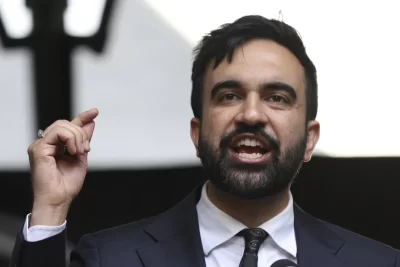
BEIRUT — Walkie-talkies and solar equipment exploded in Beirut and other parts of Lebanon on Wednesday in an apparent second wave of attacks targeting devices a day after pagers used by Hezbollah blew up, state media and officials for the militant group said. At least 20 people were killed and more than 450 wounded in the second wave, the Health Ministry said.
The attacks — which were widely believed to be carried out by Israel targeting Hezbollah but have also killed civilians — have hiked fears that the two sides’ simmering conflict could escalate into all-out war.
Speaking to Israeli troops on Wednesday, Israeli Defense Minister Yoav Gallant said, “We are at the start of a new phase in the war — it requires courage, determination and perseverance.” He made no mention of the exploding devices but praised the work of Israel’s army and security agencies, saying “the results are very impressive.”
In Wednesday’s attacks, several blasts were heard at a funeral in Beirut for three Hezbollah members and a child killed by exploding pagers the day before, according to Associated Press journalists at the scene. An AP photographer in the southern coastal city of Sidon saw a car and a mobile phone shop damaged after devices exploded inside of them. A girl was hurt in the south when a home solar energy system blew up, the state news agency reported.
The new blasts hit a country still roiling with confusion and anger after Tuesday’s pager bombings, which killed at least 12 people, including two children, and wounded some 2,800 others.
While the pagers were used by Hezbollah members, there was no guarantee who was holding the device at the time it was detonated. Also, many of the casualties were not Hezbollah fighters, but members of the group’s extensive civilian operations mainly serving Lebanon’s Shiite community.
At least two health workers were among those killed Tuesday. Doctors, nurses, paramedics, charity workers, teachers and office administrators work for Hezbollah-linked organizations, and an unknown number had pagers.
Mary Ellen O’Connell, a professor of law and international peace studies at the University of Notre Dame in Indiana, said booby-traps are banned under international law. “Weaponizing an object used by civilians is strictly prohibited,” she said.
The U.N. human rights chief, Volker Türk, called for an independent investigation into the mass explosions, saying, “The fear and terror unleashed is profound.”
The U.N. Security Council scheduled an emergency meeting on the explosions in Lebanon on Friday afternoon at the request of Algeria, the Arab representative on the powerful 15-member body.
Iran-backed Hezbollah — Lebanon’s strongest armed force — has exchanged fire with Israel’s military almost daily since Oct. 8, the day after a deadly Hamas-led assault in southern Israel triggered the war in Gaza. Since then, hundreds have been killed in strikes in Lebanon and dozens in Israel, while tens of thousands on each side of the border have been displaced. Hezbollah said its strikes are in support of its ally, Hamas.




